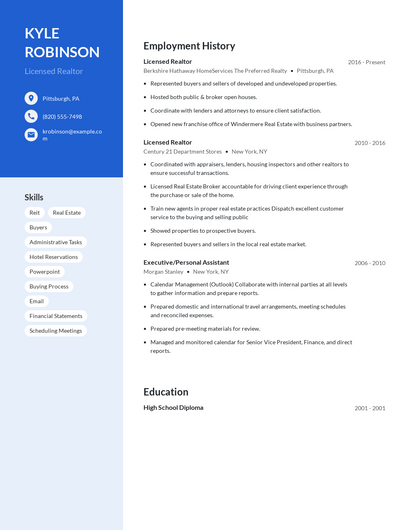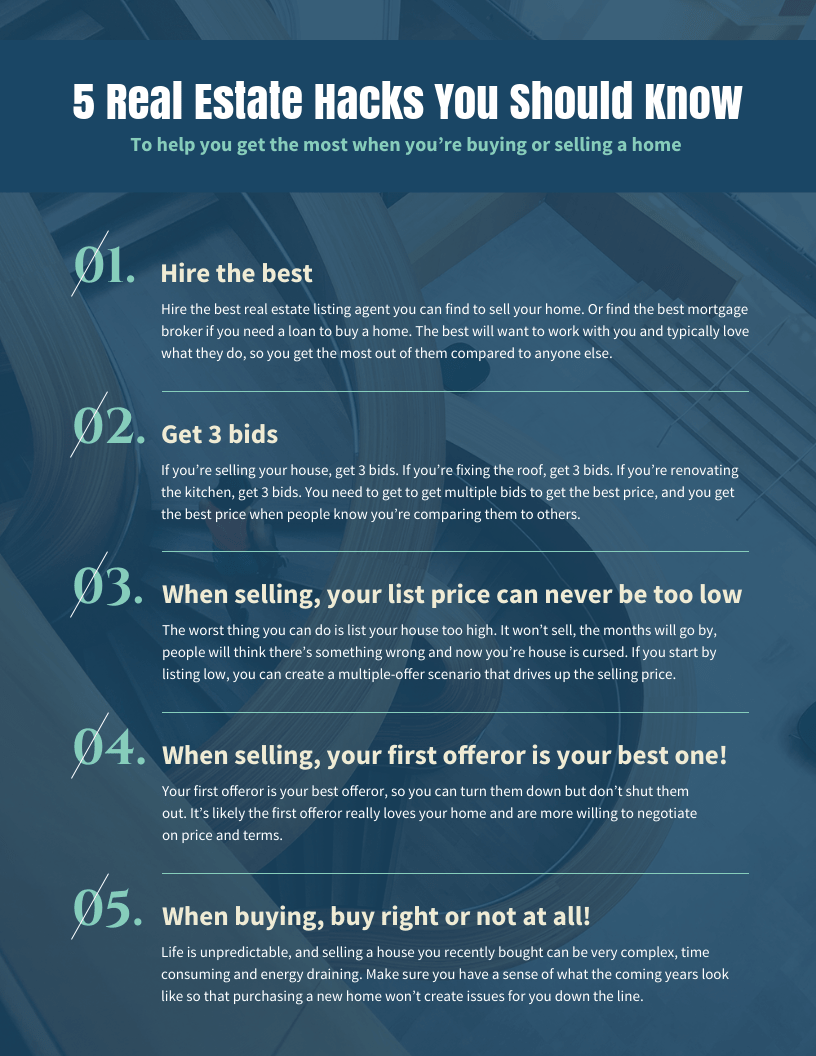
It is important to fully understand the costs associated with buying a house. There are hidden and obvious cost that can add up to a surprising amount of money. You'll need money to pay down the mortgage, as well as cash in reserve for closing costs and other unexpected expenses.
Your down payments are the most important cost associated with purchasing a home. They typically amount to between 3% and 10%. Higher down payments will help you avoid paying private Mortgage Insurance (PMI), which protects your lender in case you default on the loan.
A major expense associated with buying a home is paying property taxes. These expenses can vary by where you live and which type of property.
While you might be able to negotiate the costs with your mortgage lender they will most likely fall on the homebuyer.

Fees for services such as title searches or appraisals will be charged during the real estate transaction. A commission may also be required for a real-estate agent, as well as a real property transfer tax.
A commission is a fee that real estate agents may charge for selling a house. However, this can often be negotiable. The typical brokerage fee is between 5 and 6 percent of the sale price.
In addition to these costs, you'll also have to pay HOA fees and other related costs, such as property insurance. You will also need to purchase a home warranty that covers major problems in your new home.
The initial cost of purchasing a home may seem prohibitive, but in reality it's much cheaper than renting. And mortgage rates are at historic lows, so if you're looking to buy, it's a great time to do so.
Possessing a home can lead to many benefits, including a stronger sense in community and a higher net worth. Additionally, a home can be an excellent investment as it increases in value over the years.

Renting can have a lower monthly payment than renting. This is particularly helpful for those who are moving to an area that has high housing prices.
Another important factor to consider when buying your next home is how long you intend to stay there and what kind of renovations are you planning to do. How much money you have available each year to pay for repairs and maintenance.
Your monthly mortgage payments can be anywhere from $2,300 to $3,000, and you'll have other costs, such as property taxes and homeowners insurance, to pay as well. You will also need to pay utilities and HOA fees, which are not included in your mortgage payment.
Although it can be scary and fun, owning a house is a major financial decision that will most likely improve your quality-of-life. Here are some tips that will help you make the best decisions for your specific situation.
FAQ
What are the drawbacks of a fixed rate mortgage?
Fixed-rate loans tend to carry higher initial costs than adjustable-rate mortgages. You may also lose a lot if your house is sold before the term ends.
Do I need flood insurance?
Flood Insurance protects against damage caused by flooding. Flood insurance can protect your belongings as well as your mortgage payments. Learn more about flood insurance here.
Should I use a mortgage broker?
Consider a mortgage broker if you want to get a better rate. A broker works with multiple lenders to negotiate your behalf. Some brokers receive a commission from lenders. Before you sign up, be sure to review all fees associated.
What are the key factors to consider when you invest in real estate?
The first step is to make sure you have enough money to buy real estate. If you don’t save enough money, you will have to borrow money at a bank. It is also important to ensure that you do not get into debt. You may find yourself in defaulting on your loan.
You must also be clear about how much you have to spend on your investment property each monthly. This amount should include mortgage payments, taxes, insurance and maintenance costs.
Finally, ensure the safety of your area before you buy an investment property. It would be best to look at properties while you are away.
How long does it take for a mortgage to be approved?
It depends on many factors like credit score, income, type of loan, etc. It usually takes between 30 and 60 days to get approved for a mortgage.
What are the benefits associated with a fixed mortgage rate?
A fixed-rate mortgage locks in your interest rate for the term of the loan. You won't need to worry about rising interest rates. Fixed-rate loans offer lower payments due to the fact that they're locked for a fixed term.
How can I tell if my house has value?
Your home may not be priced correctly if your asking price is too low. If your asking price is significantly below the market value, there might not be enough interest. To learn more about current market conditions, you can download our free Home Value Report.
Statistics
- It's possible to get approved for an FHA loan with a credit score as low as 580 and a down payment of 3.5% or a credit score as low as 500 and a 10% down payment.5 Specialty mortgage loans are loans that don't fit into the conventional or FHA loan categories. (investopedia.com)
- The FHA sets its desirable debt-to-income ratio at 43%. (fortunebuilders.com)
- Some experts hypothesize that rates will hit five percent by the second half of 2018, but there has been no official confirmation one way or the other. (fortunebuilders.com)
- This means that all of your housing-related expenses each month do not exceed 43% of your monthly income. (fortunebuilders.com)
- Based on your credit scores and other financial details, your lender offers you a 3.5% interest rate on loan. (investopedia.com)
External Links
How To
How to Manage a Property Rental
It can be a great way for you to make extra income, but there are many things to consider before you rent your house. This article will help you decide whether you want to rent your house and provide tips for managing a rental property.
Here are some things you should know if you're thinking of renting your house.
-
What do I need to consider first? Before you decide if you want to rent out your house, take a look at your finances. You may not be financially able to rent out your house to someone else if you have credit card debts or mortgage payments. It is also important to review your budget. If you don't have enough money for your monthly expenses (rental, utilities, and insurance), it may be worth looking into your options. ), it might not be worth it.
-
How much is it to rent my home? Many factors go into calculating the amount you could charge for letting your home. These factors include your location, the size of your home, its condition, and the season. It's important to remember that prices vary depending on where you live, so don't expect to get the same rate everywhere. Rightmove estimates that the market average for renting a 1-bedroom flat in London costs around PS1,400 per monthly. This means that your home would be worth around PS2,800 per annum if it was rented out completely. It's not bad but if your property is only let out part-time, it could be significantly lower.
-
Is it worth it. There are always risks when you do something new. However, it can bring in additional income. You need to be clear about what you're signing before you do anything. Not only will you be spending more time away than your family, but you will also have to maintain the property, pay for repairs and keep it clean. Before signing up, be sure to carefully consider these factors.
-
Are there any benefits? There are benefits to renting your home. There are many reasons to rent your home. You can use it to pay off debt, buy a holiday, save for a rainy-day, or simply to have a break. You will likely find it more enjoyable than working every day. If you plan well, renting could become a full-time occupation.
-
How do you find tenants? After you have made the decision to rent your property out, you need to market it properly. Start by listing online using websites like Zoopla and Rightmove. Once you receive contact from potential tenants, it's time to set up an interview. This will help you evaluate their suitability as well as ensure that they are financially secure enough to live in your home.
-
How do I ensure I am covered? If you're worried about leaving your home empty, you'll need to ensure you're fully protected against damage, theft, or fire. You'll need to insure your home, which you can do either through your landlord or directly with an insurer. Your landlord will likely require you to add them on as additional insured. This is to ensure that your property is covered for any damages you cause. However, this doesn't apply if you're living abroad or if your landlord isn't registered with UK insurers. In these cases, you'll need an international insurer to register.
-
Even if your job is outside the home, you might feel you cannot afford to spend too much time looking for tenants. However, it is important that you advertise your property in the best way possible. Post ads online and create a professional-looking site. It is also necessary to create a complete application form and give references. Some people prefer to do everything themselves while others hire agents who will take care of all the details. In either case, be prepared to answer any questions that may arise during interviews.
-
What should I do once I've found my tenant? If you have a contract in place, you must inform your tenant of any changes. Otherwise, you can negotiate the length of stay, deposit, and other details. While you might get paid when the tenancy is over, utilities are still a cost that must be paid.
-
How do you collect the rent? When it comes to collecting the rent, you will need to confirm that the tenant has made their payments. If not, you'll need to remind them of their obligations. After sending them a final statement, you can deduct any outstanding rent payments. If you are having difficulty finding your tenant, you can always contact the police. They will not normally expel someone unless there has been a breach of contract. However, they can issue warrants if necessary.
-
What are the best ways to avoid problems? Although renting your home is a lucrative venture, it is also important to be safe. Make sure you have carbon monoxide detectors installed and security cameras installed. It is important to check that your neighbors allow you leave your property unlocked at nights and that you have sufficient insurance. You should never allow strangers into your home, no matter how they claim to be moving in.